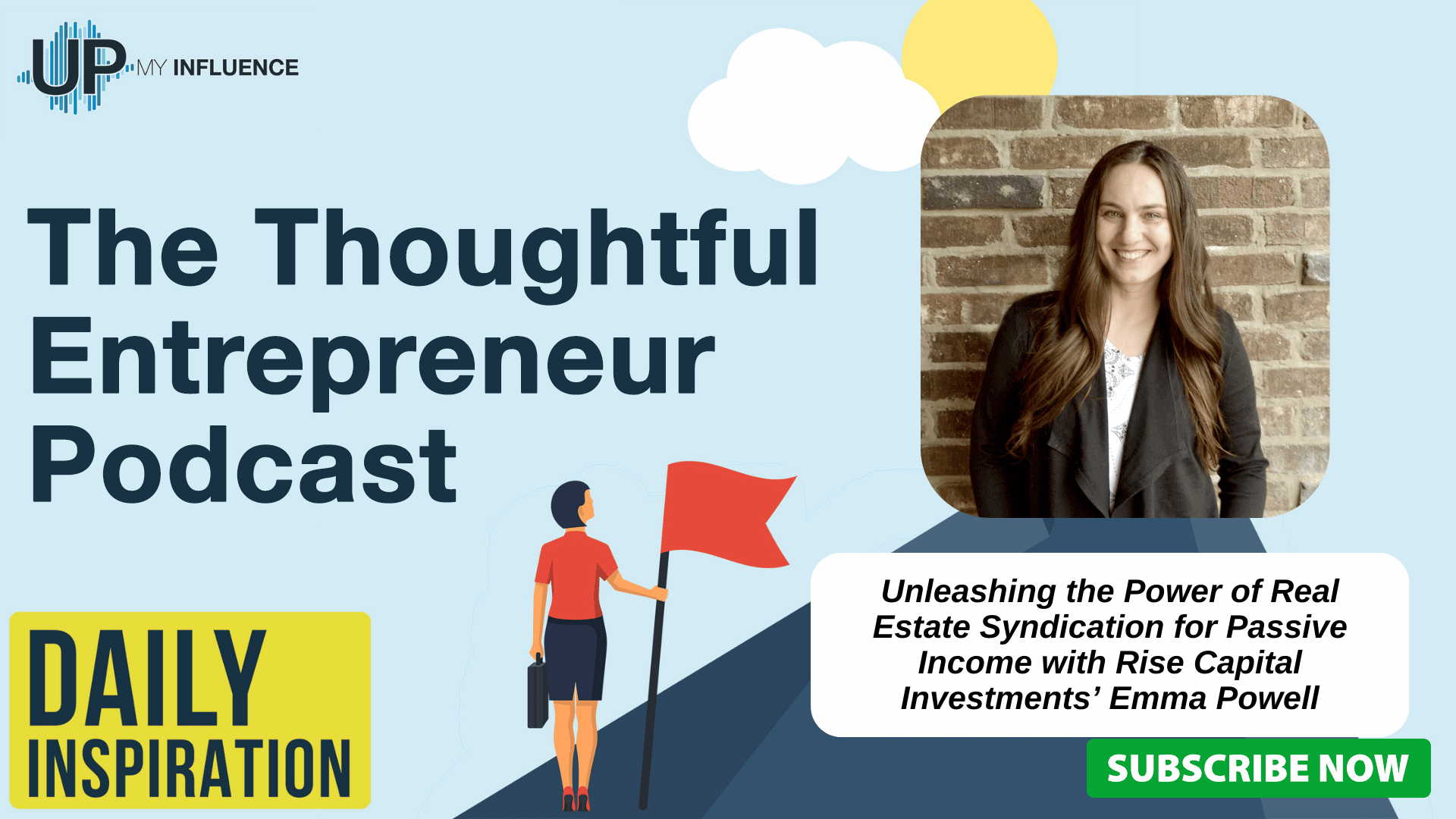THE THOUGHTFUL ENTREPRENEUR PODCAST
 Real Estate Syndication: A Golden Opportunity for Diversifying Your Portfolio
Real Estate Syndication: A Golden Opportunity for Diversifying Your Portfolio
In my role as the host of “The Thoughtful Entrepreneur,” I had the opportunity to delve into the world of real estate syndication with Emma Powell, the driving force behind Rise Capital Investments and High Rise Group. Emma's journey began with a single-handed effort to syndicate commercial real estate deals, which quickly grew into a collective of investors forming Rise Capital Investments, while High Rise Group concentrated on investor marketing. Her insights are particularly valuable for business owners and leaders looking to add passive income through stable, risk-adjusted real estate investments, offering an alternative to the stock market's fluctuations.
Emma Powell highlights the potential for real estate syndication to deliver returns between 10% to 30%, emphasizing the need to outperform the stock market and the importance of being prepared for the associated risks, such as undercapitalization. Her expertise extends to the art of attracting investment through well-crafted pitch decks, leveraging her background in graphic and information design. Emma believes in building trust through personal connections and recommends taking proactive steps, such as signing up for email lists and booking calls to explore investment opportunities more deeply.
To conclude, Emma Powell's insights into real estate syndication serve as a guide for those aiming to diversify their portfolios and secure their financial futures. She underscores the importance of personalized engagement and the courage to take the first step towards investing. As a gesture of gratitude for her contributions, I invite listeners to access a free video on creating high-ticket sales appointments and encourage them to subscribe to “The Thoughtful Entrepreneur” for ongoing inspiration and empowerment in the world of business and investment.
About Emma Powell:
Emma Powell is a seasoned commercial real estate investor specializing in multifamily properties. With a strong belief in the importance of knowledge and risk mitigation in investments, Emma has dedicated their career to mastering the art of passive real estate investing. Leveraging various financial tools, such as self-directed IRAs, 401(k)s, 1031 exchanges, dividend-paying whole life insurance, HELOCs, and discretionary income, Emma has successfully built a diverse portfolio while enjoying passive cash flow, tax advantages, and substantial returns.
About Rise Capital Investments:
Rise Capital Investments is a pioneering, primarily women-owned investment firm specializing in real estate investments, with a primary focus on delivering exceptional returns for our clients. Our firm is committed to empowering individuals and businesses to achieve their financial goals by providing access to unique debt and equity investment opportunities in the real estate sector.
Apply to be a Guest on The Thoughtful Entrepreneur: https://go.upmyinfluence.com/podcast-guest
Links Mentioned in this Episode:
Want to learn more? Check out Rise Capital Investments website at https://risecapitalinvestments.co/home
Check out Rise Capital Investments on LinkedIn at https://www.linkedin.com/company/rise-capital-investments/
Check out Emma Powell on LinkedIn at https://www.linkedin.com/in/emmapowell28/
Don’t forget to subscribe to The Thoughtful Entrepreneur and thank you for listening. Tune in next time!
More from UpMyInfluence:
We are actively booking guests for our The Thoughtful Entrepreneur. Schedule HERE.
Are you a 6-figure consultant? I’ve got high-level intros for you. Learn more here.
What is your #1 Lead Generation BLOCKER? Take my free quiz here.
Want to learn more about all the podcasts managed by UpMyInfluence? Opt in here.

